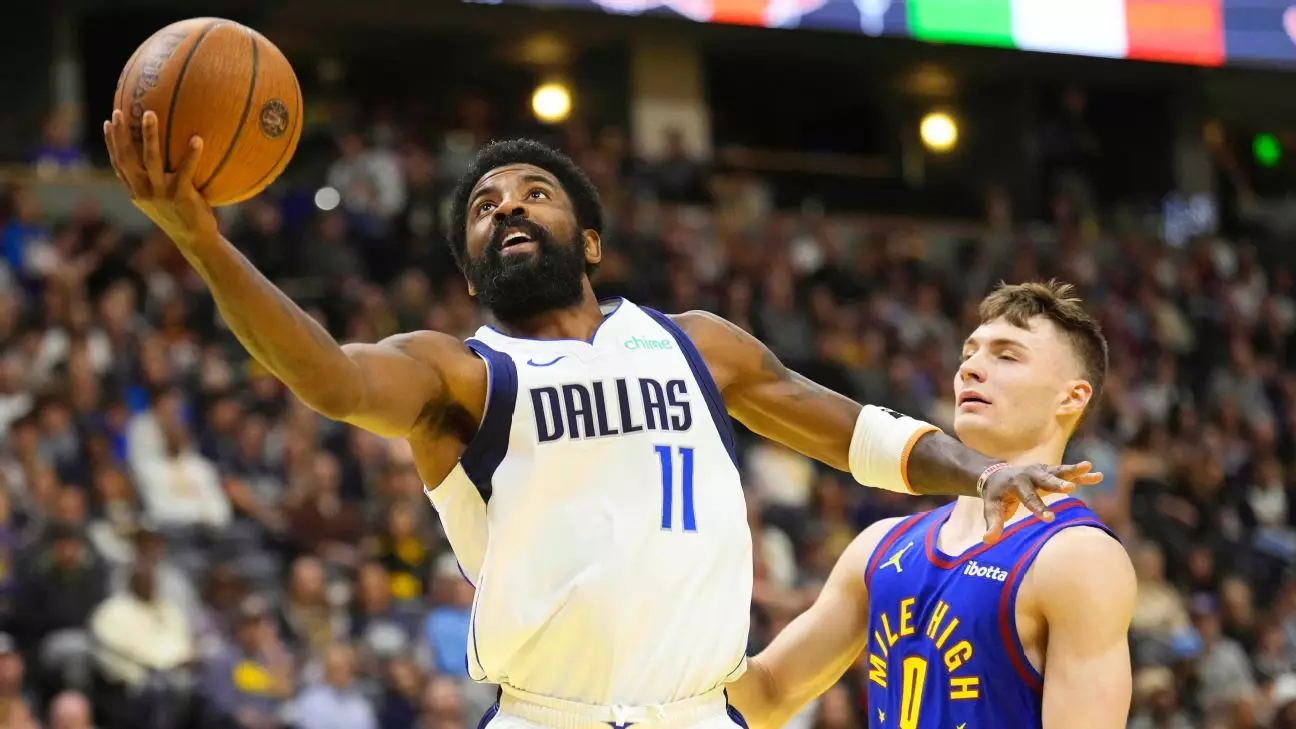Kyrie Irving’s recent return to the court after a five-game absence has clearly highlighted both the physical and mental hurdles that athletes endure when battling injuries. His diagnosis of a bulging disk in his lower back, which he revealed following an underwhelming performance against the Denver Nuggets, exposes the complexities of professional sports. Despite the Mavericks medical team listing his injury as a lumbar sprain, Irving was candid about the strain he had to manage while trying to regain his rhythm on the court. Scoring just 11 points on a disappointing 4-of-18 shooting night is not only indicative of physical constraints but also suggests the psychological burden that comes with recovering from serious injuries.
Irving provided a heartfelt insight into how the injury affected him, noting that the weeks leading up to his return were particularly challenging. He stated, „The last almost two weeks have sucked,“ reflecting a sense of frustration that many fans may not fully appreciate. Athletes are often perceived as indomitable figures, but this statement illustrates a vulnerability that humanizes him and resonates with anyone who has faced physical limitations. The acute pain he described, which was significant enough to impair his ability to meditate, reveals that injuries are not just physical; they can become overwhelming mental challenges as well.
Compounding Irving’s situation is the fact that his co-star, Luka Doncic, has also been sidelined with a strain on his left calf, placing additional strain on the Mavericks‘ roster. When key players are out, the pressure intensifies for those who can play, and Irving’s return was expected to ease this burden. Unfortunately, another injury struck during the game with center Dereck Lively II twisting his ankle early on, further depleting the team’s resources. The constant reshuffling of the lineup underscores how injuries disrupt team chemistry and game strategy. Irving’s response to these challenges—his determination to participate in the ongoing back-to-back schedule against the New Orleans Pelicans—demonstrates his commitment to the team.
The journey of managing a bulging disk is just beginning for Irving, as he explained the necessity of using medication to alleviate pain. While he feels fortunate that surgery is not yet required, the reality remains that a bulging disk necessitates ongoing care and attention. This nuanced understanding of his condition could serve as a template for others suffering similar injuries, as Irving draws upon the collective experience of teammates and medical staff to navigate his recovery.
As Irving continues to play through discomfort, he exemplifies the tenacity and earnestness expected of elite athletes. Yet, it’s crucial for both fans and management to acknowledge the human aspect of sports; players often endure unseen battles off the court that play an equally significant role in their performance. As the Mavericks‘ season progresses, Irving’s story serves as a stark reminder of the fragility of athletic careers and the tenacity required to persevere.


Napsat komentář